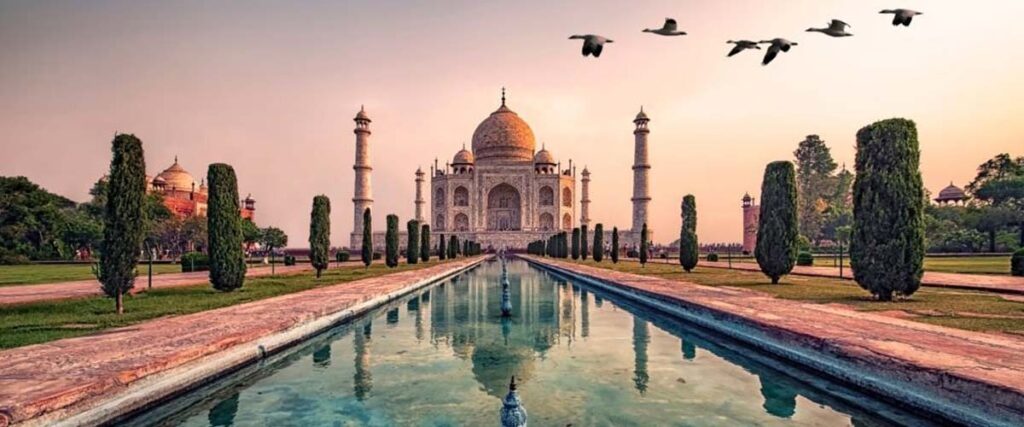Covid-19 pandemic gave the worst experiences of our life and people faced lots of problems worldwide. Maximum countries faced the problem related to employment, medical facilities, etc. the hardest hit sectors are hospitality sector, Travel, Tourism, and Real Estate sector during the Covid-19 pandemic. But then everyone became bold enough to deal with this situation.
Today, I am going to explain to you the 5 most affected job sectors in the pandemic. If you are looking for your future in these sectors then you must be careful and know how many chances of growth in these sectors for the future. So please go through the topic carefully.
Contents
5 Most affected job sectors in the pandemic
1. Hospitality:

The hospitality industry includes a diverse range of service industries such as lodging, food and beverage service, event planning, theme parks, travel, and tourism. Food and beverages, lodging, recreation, travel and tourism, and meetings and events are the four sectors of the hospitality industry.
Earnings in the hospitality industry
Based on 10 profiles, employees who know the Hospitality Industry earn an average of 25 lakhs, with most earning between 15 lakhs and 41 lakhs per year. The top 10% of employees earn more than Rs. 40 lakhs per year.
Eligibility
Many hospitality employers will only hire managers with a degree or diploma in hospitality management in addition to a high school diploma or equivalent.
A Bachelor of Science (BS) degree in hospitality management, for example, will put you ahead of the thousands of other aspiring hospitality managers.
You can also study diploma in hospitality management. These types of postsecondary industry-specific education will make you a more appealing candidate to hospitality employers, increasing your chances of landing a job as a hospitality manager.
Worse effect on hospitality industry:
Many people in the hospitality industry lost their jobs due to the Covid-19 pandemic, but they have also seen significant changes in how jobs should evolve.
All hoteliers are united in the fact that they have been affected by the global pandemic in some way.
The profound impact of the coronavirus on hotels and staff around the world is explained by how hoteliers are dealing with the crisis.
It was the first in the world to close hotels in states and countries, and prolonged power outages forced some to permanently close.
The hospitality industry in India has declined sharply in the first quarters of 2020 due to the outbreak of Covid-19, which has a greater impact on various areas of the hospitality sector.
There has been a significant decrease in tourist and business travel activities as a result of the partial suspension of travel and containment actions.
-
5 Best Computer Course in India for Private Job (India में प्राइवेट नौकरी के लिए 05 BEST कंप्यूटर कोर्स)
-
Google jobs in India | Google में चाहिए नौकरी तो कर ये 5 कोर्स - मिलेगा लाखों का पैकेज | Google Jobs
-
Retail Management Career | Retail Jobs | How to get Retail Management Job
-
How to Start Earning as a Graphic Designer?
-
Paramedical Courses | Paramedical Career | कम बजटऔर कम फीस में मेडिकल करियर बनेगा
2. Tourism:

The tourism industry, in its broadest sense, includes all businesses that directly provide goods or services to facilitate business, pleasure, and leisure activities away from the home environment.
Tourism is divided into five sectors: transportation, lodging, food and beverage, recreation and entertainment, and travel services.
Average salary:
In India, the national average salary in the tourism sector is Rs 22,828 per month.
Eligibility:
There are no formal qualifications required to work in this field, but employers prefer to hire people who have a Tourism Diploma or related qualification.
If you’re just getting started in the tourism industry, look for an entry-level position with fewer educational or training requirements. Positions such as server or customer service representative in a hotel, hostel, casino, or other tourist attraction are examples of such jobs.
Worse effect on Tourism:
The closure of hotels, dharamshalas, resorts, and airport flights following the start and spread of the COVID-19 pandemic has already resulted in a 1.25 trillion rupee revenue loss for the Indian tourism industry by 2020.
The COVID-19 pandemic has had a significant impact on both global tourism and the Indian tourism industry.
If the world does not recover quickly from this pandemic, the Organization for Economic Development predicts a significant drop in the overall international tourist economy of around 80%. (OECD, 2020).
This pandemic is also expected to have a significant impact on the Indian tourism industry.
In addition to the expected decrease in international and domestic tourist travel.
The pandemic is expected to have a negative impact on revenue—both in terms of domestic revenue generation & foreign exchange earnings, employment, and contribution to GDP (Ministry of Tourism, 2019–2020).
3. Travel:

The travel industry includes services directly related to travel, such as transportation, as well as services related to catering for travellers’ needs and desires after they arrive at their destination.
Average earnings:
Employees working as Travel Managers earn an average of 16 lakhs per year, with most earning between 10 lakhs and 48 lakhs. The top 10% of employees earn more than Rs. 21 lakhs per year.
Eligibility:
A Bachelor’s Degree in Travel and Tourism is required to work as a Travel Agent. Students should be well-versed in customer service, organizational skills, telephone etiquette, and strong communication abilities.
Worse effect on Travel:
The pandemic outbreak brought the entire world to a halt and caused major disruptions in people’s lives all over the world.
It also had a negative impact on the global economy, resulting in widespread job losses.
The travel and tourism industry was the most affected of all the industries that suffered as a result of the lockdown and travel restrictions.
According to a World Travel and Tourism Council (WTCC) report, COVID-19 has cost the tourism industry nearly USD 22 billion and resulted in the loss of nearly 50 million jobs worldwide.
A large portion of our population lives in rural or semi-urban areas and has worked in the travel industry in some capacity.
According to government data, nearly 21.5 million people lost their jobs between April and December 2020.
With massive vaccination drives taking place across the country, India’s travel and tourism industry appear to have a bright future.
4. Automobile:

The automotive industry includes a diverse range of businesses and organizations involved in the design, development, manufacturing, marketing, and sale of automobiles.
Average salary:
Employees who know Automobile earn an average of 21 lakhs per year, with the majority earning between 10 lakhs and 50 lakhs per year. The top 10% of employees are paid more than Rs. 37 lakhs per year.
Eligibility:
Students with a 10+2 certificate in Mathematics, Physics, and Chemistry are eligible to apply for Automobile Engineering or Mechanical Engineering with a specialization in Machine Design or CAD/CAM Automation.
Worse effect on Automobile:
The automobile industry has suffered a lot due to Covid-19.
It is estimated that the overall revenue impact will be between $1.5 and $2 billion per month across the industry.
Even after we open up further in passenger vehicles, demand is expected to remain high, with discretionary spending taking a back seat.
This will be accompanied by a transition to BS-VI standards, which will raise the cost of ownership.
Demand for two-wheelers may fall, but it is expected to rebound in U fashion.
Commercial vehicles are expected to show some resilience, but this is contingent on the government continuing to invest in large infrastructure projects and the availability of liquidity in the transportation sector.
5. Real Estate:

Real estate encompasses both the land and any permanent improvements, whether natural or man-made, such as water, trees, minerals, structures, homes, fences, and bridges.
Average salary
In India, the average salary for a Real Estate Agent is 2.4 Lakhs per year (20.0k per month). Online prelicensing courses can help to expedite the process. The steps vary by state, but in general, you must take a real estate prelicensing course, pass the licencing exam, activate your licence, and join a brokerage.
Eligibility:
Although a degree is not required to become an estate agent, strong competition often necessitates relevant experience and/or qualifications. A degree in a relevant field, such as marketing, business, property studies, or real estate, can be beneficial.
Worse effect on Real Estate
The real estate sector in India suffered significant setbacks during the first and second waves of the COVID-19 pandemic, but it is now showing signs of steady recovery.
Because so many people resorted to working from home during the pandemic, the commercial real estate sector suffered greatly.
With the number of cases decreasing, vaccination drives increasing, people returning to work, and organizations adapting to hybrid working models,
The commercial real-estate sub-sector is expected to grow at a healthy rate.
After being severely impacted by Covid-19 due to a lack of labour and low budget spending, India’s real estate industry is now gaining momentum and is on track for a healthy recovery.
As a result of COVID-19, the commercial sector expects increased investment from NRIs.
Because of the rupee’s depreciation, investment opportunities for NRIs have become significantly more lucrative.
Real estate investors have shifted their focus to commercial real estate, which offers a higher yield and potential for appreciation.
Conclusion:
In India, more than 40 crore low-wages workers may face more problems in the future because these groups are affected more due to the Covid-19 pandemic. And the 5 most affected job sectors in the pandemic are trying to bounce back in their sector.
The maximum job loss is around 50% faced by lower incomes workers due to Covid-19. And the overall unemployment rate for the urban areas increased from 8.21% to 9.3%, and from 6.44% to 7.28% for the rural areas. There is a bad impact of Covid-19 on employment in India but then too India faced this grave boldly and now India is ready to bounce again for its growth.
FAQs:
- Hospitality
- Tourism
- Automobiles
- Travel
- Real estate
Travel and tourism are the job sector affected by Covid-19
The maximum job loss is around 50% faced by lower incomes workers due to Covid-19. And the overall unemployment rate for the urban areas increased from 8.21% to 9.3%, and from 6.44% to 7.28% for the rural areas.
There is a bad impact of Covid-19 on employment in India but then too India faced this grave boldly and now India is ready to bounce again for its growth.
Low-wages, daily workers, hawkers, and hourly workers jobs hit the hardest by the Covid-19 pandemic.
In India, more than 40 crore low-wages workers may face more problems in the future because these groups are affected more due to the Covid-19 pandemic.

Hi, I Surendra Gusain founder-director DOTNET Institute with 21-year experience in computer training and 3+year experience in digital marketing as a YouTuber, Blogger, and Trainer or coach.

